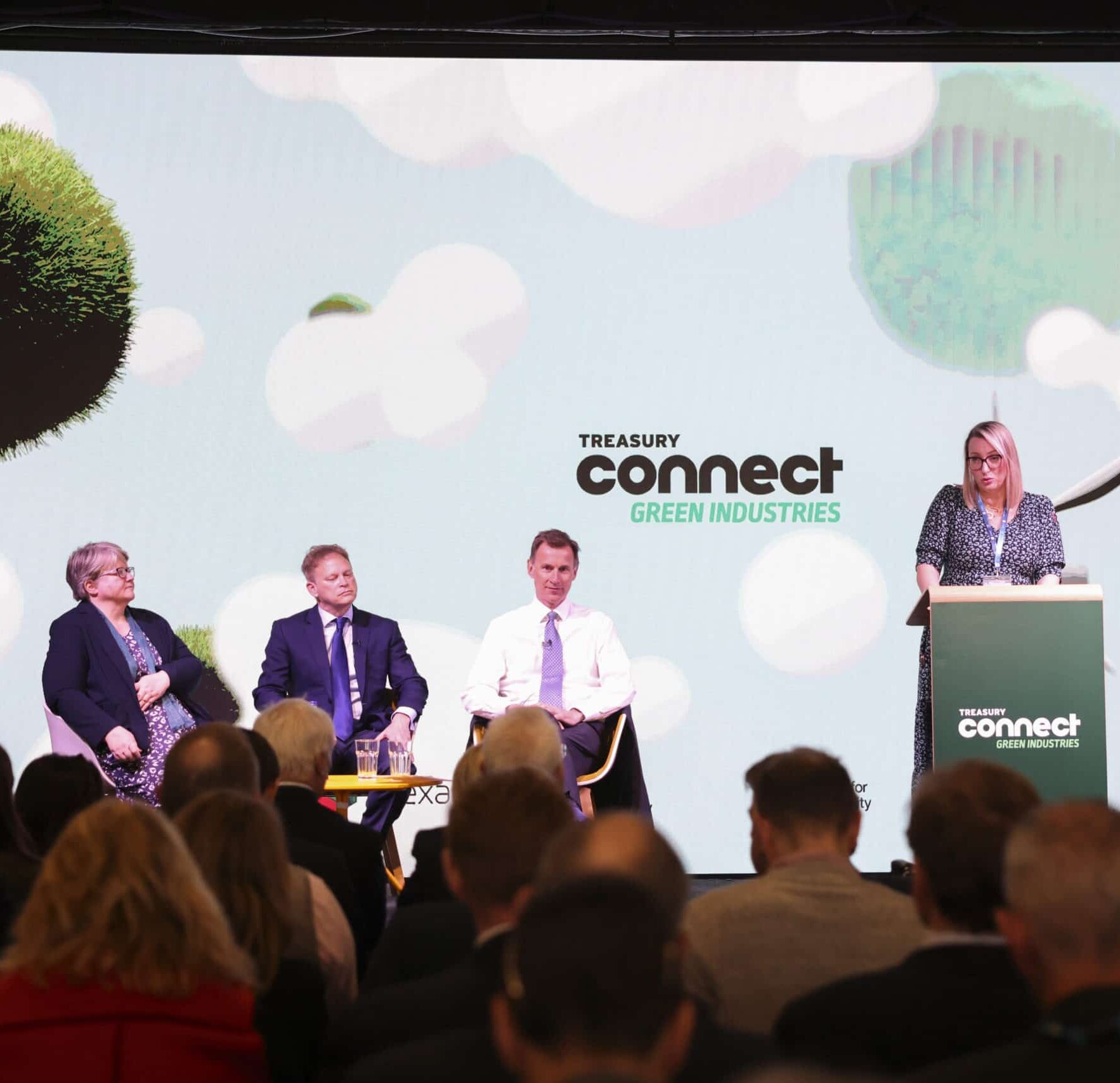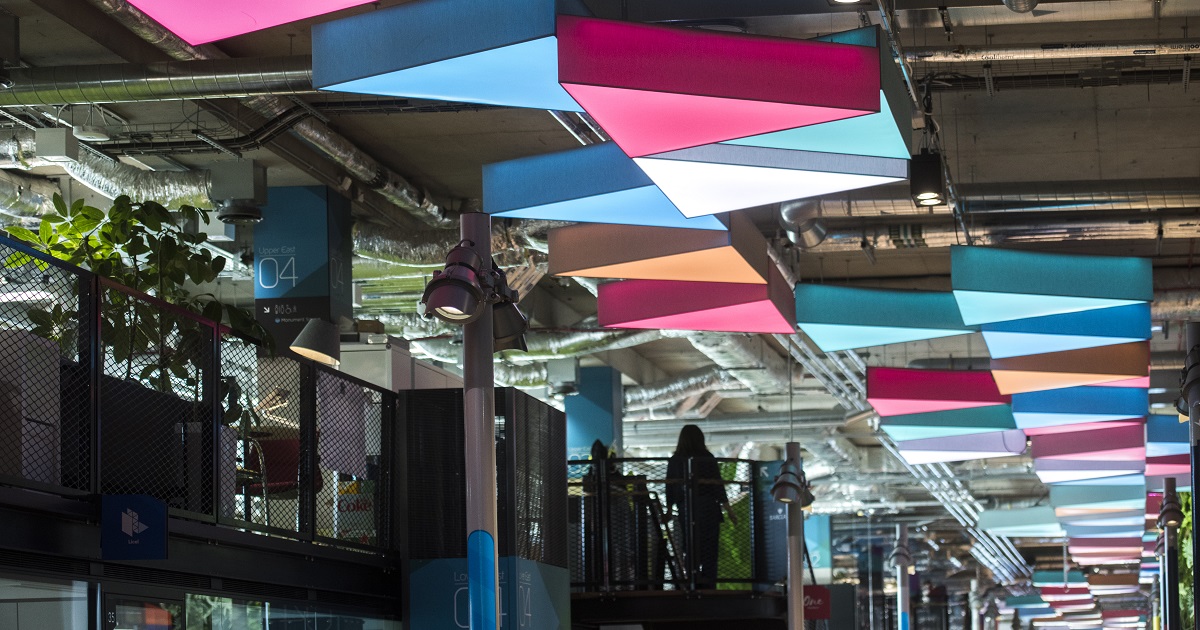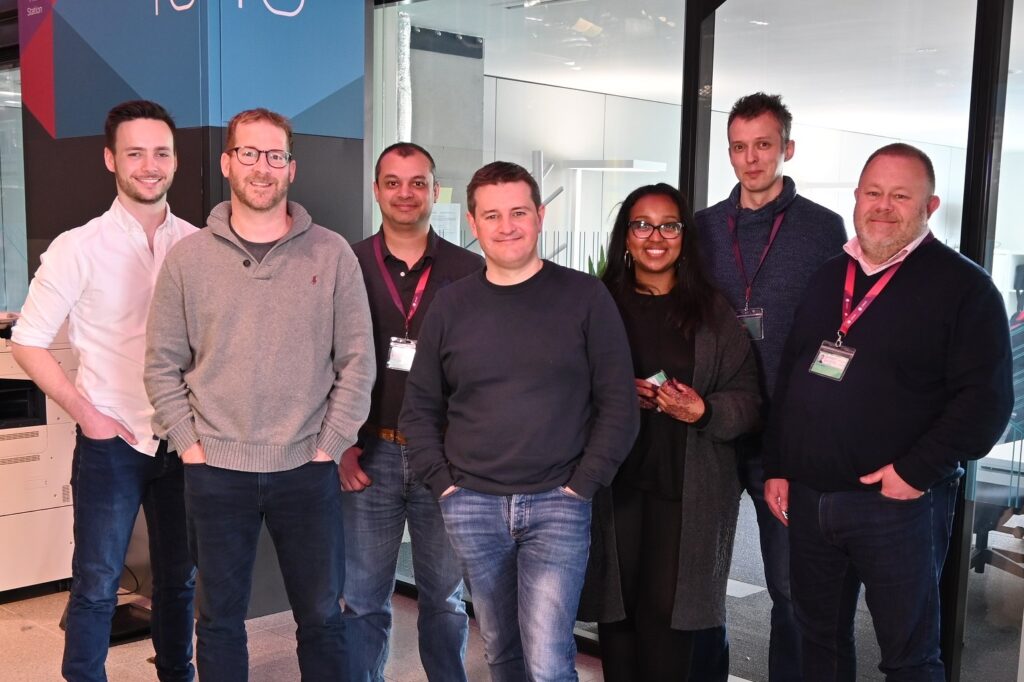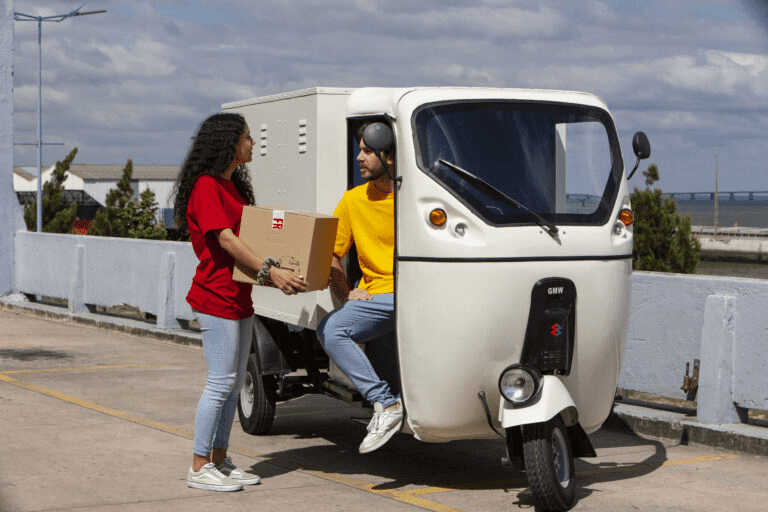
“Plexal is an innovation company that’s had environmental sustainability in its heritage since inception. Over the last six years since our launch, we’ve worked in the areas of: carbon capture, smart homes, electrification and connected mobility. We’ve also worked on complex net zero innovation challenges, working with startups, industry and government.”
Kate Pearman, COO of Plexal, opening Treasury Connect: Green Industries
To achieve a truly sustainable society, we need to constantly ask ourselves how we can do better. That means at the national level, by hosting events like Treasury Connect: Green Industries, but also in our day-to-day lives and business operations.
To do our part to reduce electricity use, Plexal Stratford’s iconic colour triangles will be turned off at 7pm moving forward. We’ll make sure there’s still plenty of light to work by for our members burning the midnight oil, but the decorative lights will be going dark until the start of the next workday.
Why the lights? Well we worked it out, and turning them off for 5 extra hours will save up to 100 kilowatt hours a day. That’s enough to fully charge almost 6000 iPhone 14 Pro Maxes, or one Tesla Model S. Burning coal to produce that much electricity would release a little over 100kg of carbon dioxide into the atmosphere. When put in those terms, we decided we could stand to look just a little less pretty during the quiet hours.
And we need your help too! Plexal is a community of innovators, and being more sustainable will, necessarily, always be a community effort. We’re encouraging all our members to consider their electricity use at work and if any could be saved. Maybe there are devices in offices or at desks that could spend more time switched off, rather than merely locked or on standby. Every little helps!
In celebration of the power of our community to combat the climate crisis, we’ll be highlighting workspace members that are driving sustainability for themselves and their clients. Check back weekly to meet a new team of innovators!
CARBON QUOTA
CarbonQuota is on a mission to assist the packaging and printing industries in their transition to Net-Zero, with a new generation of carbon footprint technology. Designed by a team of specialist scientists, their software calculates the carbon footprint of an entire supply chain through careful measurements and innovative analysis.
Net-Zero is the ultimate ambition for anyone taking climate change seriously. It’s complex and requires deep and rapid cuts in both your business and your supply chain.
They help you determine which activities within their operations have the greatest environmental impact. This allows you to identify opportunities to reduce your carbon footprint.
Through instant carbon footprints, self-serve access, visualisation and reporting, and real-time supply chain modelling, they work to the highest international standards.
CARBON NEUTRAL FUELS
Carbon Neutral Fuels is a carbon capture startup with a simple long-term ambition: replace a $5tn global fossil fuel industry with carbon-neutral synthetic alternatives. It’s a lofty goal to be certain, but also one that makes a lot of sense. Humanity has no choice but to phase out fossil fuels over the coming decades, and electrification isn’t always a viable replacement.
The Co-founders, Sophie Zienkiewicz and Alasdair Lumsden, have been operating for six months. They’re speaking with suppliers and vendors, raising funds to conduct a feasibility study and produce a concept design for an efuel facility that captures carbon dioxide and recycles it into useable fuels.
The process is complex, but in summary goes like this:
- Capture carbon dioxide directly from the atmosphere.
- Pass this into an electrolyser along with high-temperature steam, producing syngas – carbon monoxide and hydrogen.
- Send those two gasses into a Fischer-Tropsch reactor, which combines them to produce liquid fuel.
- Use that synthetic fuel anywhere as an easy drop-in replacement for fossil fuels.
If your energy inputs in the first two stages are renewable – and Carbon Neutral Fuels makes a point of ensuring that they are – then the process has net zero emissions. Every atom of carbon you release by burning synthetic fuels in step 4 was originally captured from the atmosphere in step 1; the very definition of neutrality.
It’s not a miracle, sustainable aviation fuel (SAF) produced this way is currently 3-5x more expensive than commercial jet fuel. But as the world takes net zero more seriously there will be no choice but to move to sustainable alternatives. The EU, for example, has committed to using 63% SAF by 2050. And as the cost of renewable energy falls, so too will the price of their fuel.
But the process of capturing carbon dioxide and converting it to liquid fuel takes a lot of energy. If you’re producing renewable electricity for it, why not just feed that straight into the national grid instead and skip the whole process?
Because electricity must be stored in batteries, which are far less energy-dense than liquid fuels and therefore unsuited to many uses. Planes, for example, are almost impossible to electrify. You could double the number of batteries in an electric plane, but barely increase its range at all because of the huge increase in weight. If commercial aviation is to still exist in a net zero world, then synthetic fuels are one of only a few options.
BILITI ELECTRIC
The automobile industry faces huge technological disruption as the inherent efficiency of electric vehicles redefines what’s possible in urban mobility. BILITI Electric is a fast-growing global player guided by a clear mission: to provide smart, efficient and affordable electric mobility solutions.
Founded in 2021, BILITI Electric develops future-proof technologies and continually optimises them to meet the demands of tomorrow. It chose electrifying delivery vehicles, which are less efficient and typically driven further than personal cars, as the challenge to tackle.
The Taskman and Dumpstar vehicle families were born from BILITI Electric’s commitment to using today’s engineering solutions in the most efficient manner possible: they’re smart, extremely energy-efficient and pioneer swappable battery technology that gets deliveries back on the road in less than a minute.
But BILITI Electric is also working on the cutting-edge of mobility science! Its team’s hard at work on what’s next in mobility. From hydrogen fuel cells to connected vehicle fleets enabled by lossless 5G, it’s ready for the day these technologies mature enough for integration.
BILITI Electric operates in 13 countries with over 40 B2B clients, and its range of mobility products are already in use by more than 2500 happy riders. Here’s its advice for startups that want to operate more sustainably:
“If your supply chain involves delivery of a physical product, look very closely at the carbon footprint of every stage of that delivery. You might already be working hard to find the greenest ways to get your product into a region, but you can undo all of that good if it goes the last mile in a diesel van.”





